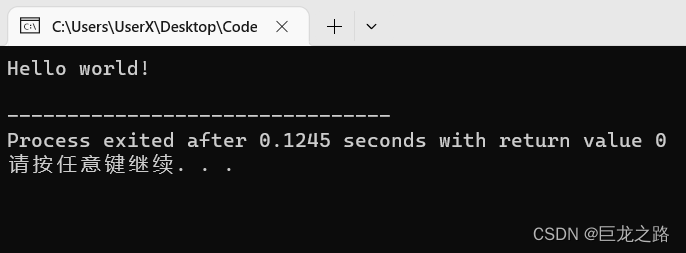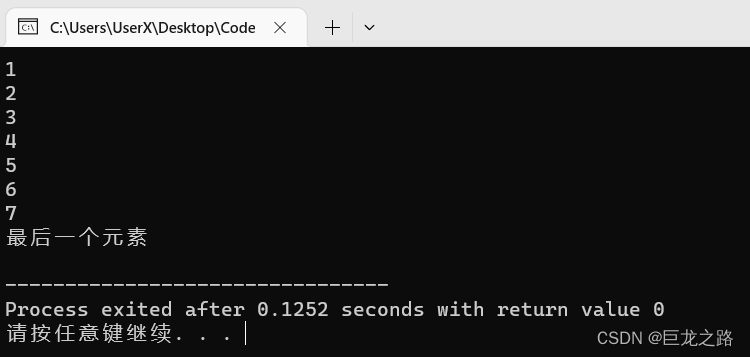-
【C++】可变参数模板
2023年9月9日,周六下午
这个还是挺难学的,我学了好几天...
在这里我会举大量的示例程序,这样可以有一个更好的理解,
不定期更新。
目录
推荐文章:
这里有一些不错的相关文章
Parameter pack(since C++11) - cppreference.com
Variadic function templates in C++ - GeeksforGeeks
Variadic templates in C++ - Eli Bendersky's website
在谷歌搜索“Variadic Template”就可以找到更多这样的文章
示例程序一:拼接字符串
- #include
- #include
- using namespace std;
- template<typename... Args>
- string concatenate(Args... args) {
- string result;
- for (const auto& arg : {args...}) {
- result += arg;
- }
- return result;
- }
- int main() {
- cout << concatenate("Hello", " ", "world", "!") << endl; // 输出:Hello world!
- return 0;
- }

示例程序二:求整数和
- #include
- using namespace std;
- template<typename... Args>
- int sum(Args... args){
- int sum=0;
- for(const int& arg:{args...})
- sum+=arg;
- return sum;
- }
- int main() {
- cout <<sum(1,2,3,4,5,6,7,8,9,10) << endl; // 输出:55
- return 0;
- }

示例程序三:输出一串整数
示例程序一和二是通过遍历的方式,而这个示例程序是通过递归的方式。
使用递归的方式时要注意,递归到最后时函数的参数是空的,
所以要准备额外准备好一个函数来处理这种情况。
- #include
- using namespace std;
- void print()
- {
- cout << "最后一个元素"<}template <typename T, typename... Args>void print(T first, Args... args){cout << first << endl;print(args...);}int main(){print(1, 2, 3,4,5,6,7);return 0;}

- 相关阅读:
2023NOIP A层联测6 万花筒
代码随想录刷题记录 6 - 二叉树(1)
网络是怎样连接的--探索协议栈和网卡
AGV搬运机器人能给企业带来哪些效益?
SAP STMS请求重复传输
IMX6Q的SD卡启动使用教程【超完整】(2):busybox交叉编译根文件系统
基于BP神经网络的含水率预测模型matlab仿真
java计算机毕业设计三门峡市旅游景点一站式服务规划系统演示录像源码+数据库+系统+lw文档+mybatis+运行部署
Redis(7)----数据库与过期键
Linux 安全 - Capabilities机制
- 原文地址:https://blog.csdn.net/m0_61629312/article/details/132777887
